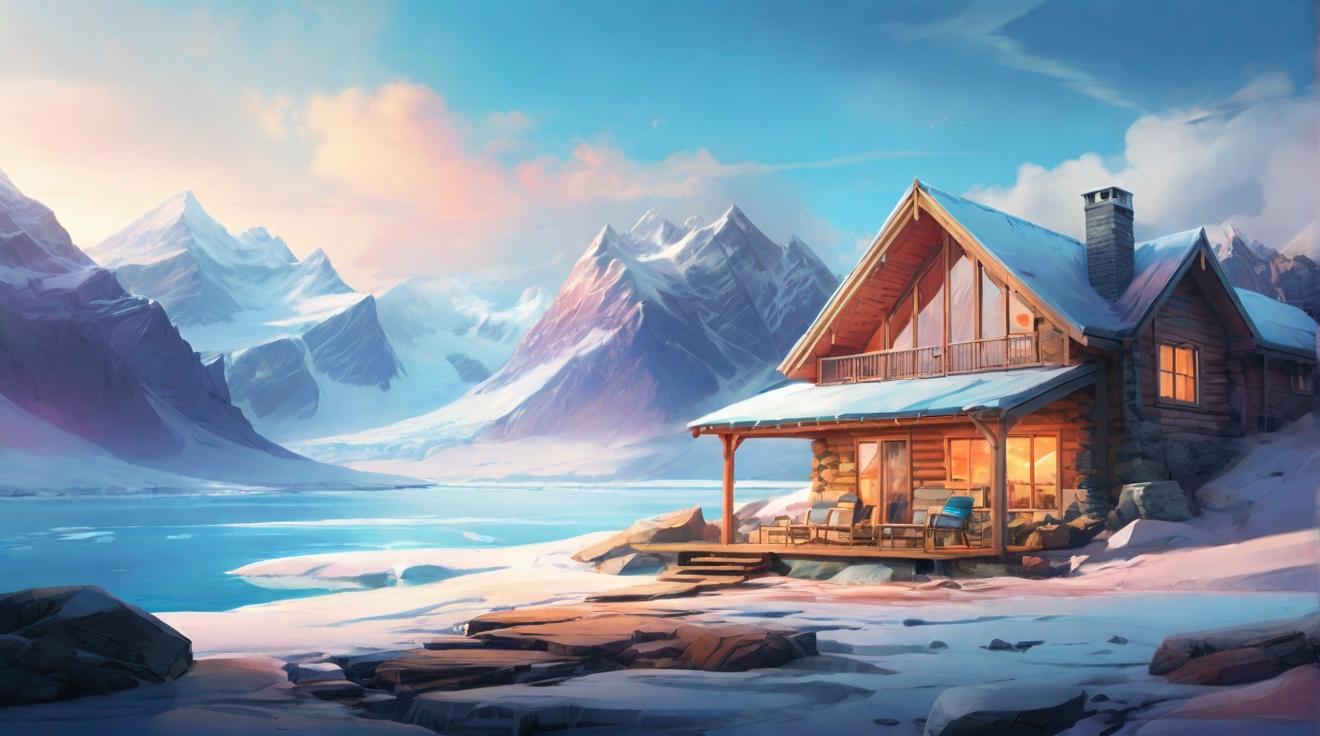Airbnb vs. Glacial Retreats: Navigating the Cold Regions Through SWOT Analysis
In the ever-evolving landscape of travel and tourism, the thirst for unique experiences continues to shape industry trends and consumer preferences. Among the myriad of options, two distinct choices stand out for those drawn to the serene beauty and chilling adventures of cold regions: Airbnb rentals and glacial retreats. A comprehensive SWOT analysis reveals the strengths, weaknesses, opportunities, and threats associated with each, offering keen insights for travelers seeking unforgettable journeys in frosty landscapes.
Strengths: A Tale of Comfort and Adventure
Airbnb has cemented its reputation as a platform offering diverse accommodations, ranging from cozy cabins to luxurious chalets, tailored for every budget and preference. Its strength lies in its global network, accessibility, and the personalization of travel experiences. Travelers can immerse themselves in the local culture, enjoying a home-away-from-home environment even in the most remote icy terrains.
On the other hand, glacial retreats offer an unparalleled opportunity to connect with nature and experience the pristine beauty of glaciers up close. These retreats often provide guided tours, educational programs, and adventure activities such as ice climbing and snowshoeing, making them a magnet for eco-conscious travelers and adventure seekers. The exclusivity and focus on sustainable tourism practices are their main selling points, appealing to those looking to minimize their environmental impact while exploring the wonders of glacial landscapes.
Weaknesses: Accessibility and Environmental Concerns
However, both options come with their own set of challenges. Airbnb's presence in remote cold regions can be limited, and the quality of accommodations can vary significantly, potentially deterring those looking for a guaranteed high-end experience. Additionally, the environmental footprint of traveling to and staying in such locations is a concern for environmentally conscious individuals.
Glacial retreats, while offering unique experiences, often come with a higher price tag due to their specialized nature and the cost of maintaining sustainable practices. Moreover, the very essence of their attraction – the glaciers themselves – are under threat from global warming, making these ventures vulnerable to the impacts of climate change.
Opportunities: Expanding Horizons and Sustainability
The rise of interest in remote and cold region tourism presents significant opportunities for both Airbnb and glacial retreats. For Airbnb, expanding its listings in these areas and partnering with local hosts to offer tailored experiences can attract more travelers. Emphasizing sustainable lodging options and promoting eco-friendly travel practices could further enhance its appeal to the environmentally conscious demographic.
Glacial retreats have the opportunity to become leaders in sustainable tourism by adopting and showcasing cutting-edge environmental practices. Enhancing educational offerings and advocating for the preservation of these fragile ecosystems can not only increase awareness but also build a loyal customer base that values conservation efforts.
Threats: Climate Change and Over-Tourism
The looming shadow of climate change poses a significant threat to both Airbnb and glacial retreats operating in cold regions. The retreat of glaciers not only jeopardizes the natural beauty that attracts tourists but also calls into question the long-term viability of these businesses. Additionally, the increasing popularity of unique travel experiences risks leading to over-tourism, which can strain local resources and damage the very environments these ventures seek to protect.
In conclusion, as travelers continue to seek out unique experiences in cold regions, both Airbnb and glacial retreats offer compelling, albeit different, value propositions. Through a careful SWOT analysis, it's clear that leveraging strengths and opportunities while addressing weaknesses and threats is crucial for navigating the challenges of the travel industry. Sustainable practices, innovation, and a keen focus on the changing needs and preferences of travelers will be key to thriving in the competitive landscape of tourism in cold climates.













